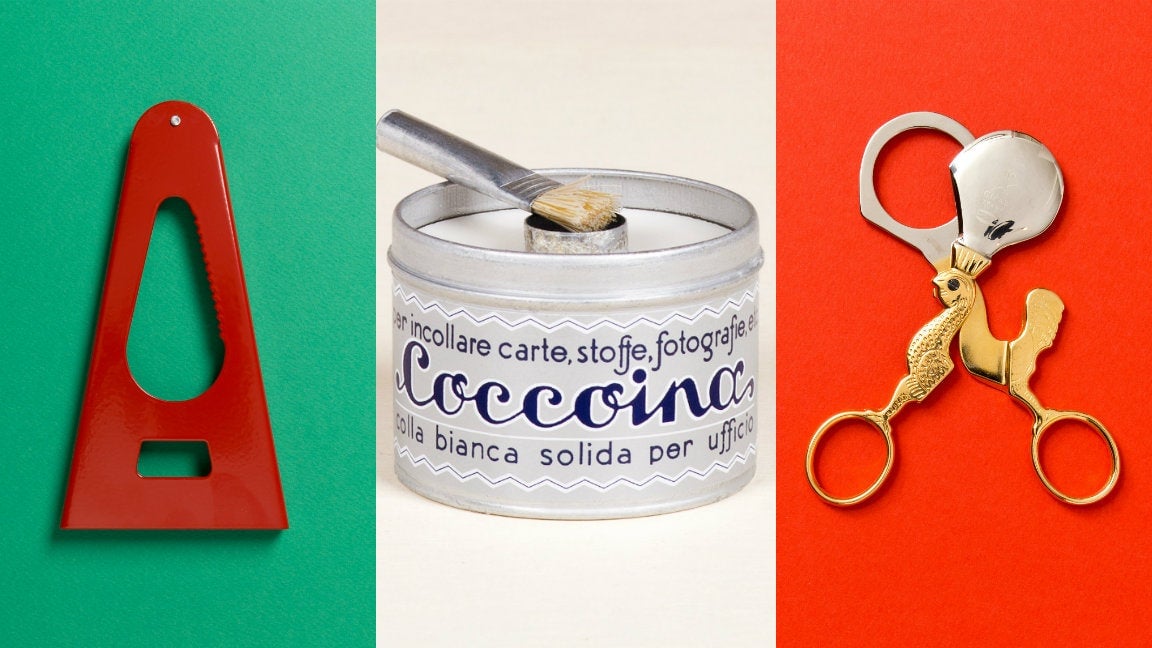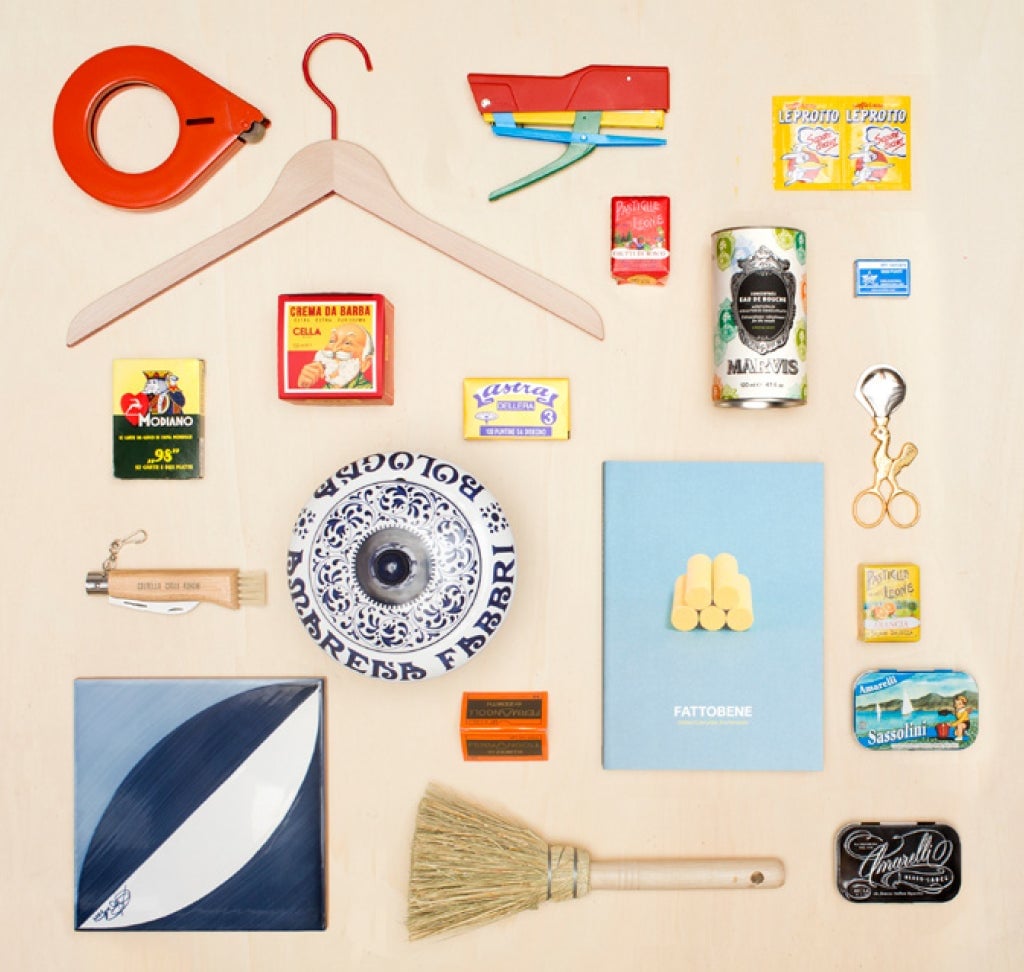The MoMA Design Store is selling household goods from Italy
“Even the most humble object can become a source of wonder.”


“Even the most humble object can become a source of wonder.”
This principle fuels Fattobene, an online store that celebrates curious traditional household goods from all over Italy. Its products, 150 of which are now being sold at the MoMa Design Store in New York, includes charming Genoese soaps, handmade brooms, healing Ligurian sulfur sticks, graphic floor tiles by Milanese architect Gio Ponti, and sexy tape dispensers manufactured by an industrial machine shop in Lombardy. Yes, a tape dispenser can be sexy.
Fattobene, which means “well-made” in Italian, is the brainchild of lifestyle journalist Anna Lagorio and stage-director-turned-photographer Alex Carnevali. The idea for the venture came during a holiday trip to Italy’s southern regions. As Lagorio recalls, “We were drinking a bottled iced coffee that is very typical of Calabria. The bottle was very beautiful, with original vintage graphics, and we thought, ‘This is wonderful, why hadn’t we ever heard about it?'”
She and Carnevali, both from northern Italy, were struck by how much they didn’t know about their own country. “In the north, we have no idea about the beautiful material culture in the south,” says Lagorio, who was born in the northwest coastal region of Liguria. “In fact, many Italians don’t know what’s happening in other regions—and we’re in the same country.”

The duo’s epiphany echoes the cultural divide between Italy’s affluent northern region and the economically troubled south. Established as a nation in 1861, Italy still exhibits intense regional loyalty. The right-wing political party Lega Norda (Northern League) has been campaigning to split the country in two. There are pervasive character stereotypes, too. Italians living north of Rome are often seen as “industrious, ambitious, materialistic, methodical, and progressive,” as a 2018 study in the Psicologia sociale journal suggests. Southerners, on the other hand, are perceived as “tradition-loving, loyal to family ties, and passionate.”
Since starting Fattobene in 2015, Lagorio and Carnevali have been bombarded with recommendations for local products from every nook of Italy. “We realize that there’s still a lot to discover. Every city, little town, or village have their own traditions,” says Lagorio. “We have a deeper perception about our country.”
Saving Italy’s artisan class
Lagorio, who was in New York this week to launch Fattobene at the MoMA Design Store, says that preserving Italy’s craft culture is their ultimate motive. As in many places around the world, the arrival of mass-produced brands in the country has put many small workshops out of business. “The Michelangelos of the manual arts are dying and [taking] their mastery with them [to the grave],” reports Deutsche Welle. “Italians, despite high unemployment rates, just aren’t learning crafts anymore.”
Each product sold on Fattobene is accompanied by a history about its makers. Perusing the website, we learn that Calabria was once considered the world’s best source for licorice, for instance. But a large US-backed English candy maker eventually saturated the market with cheaper versions and killed all but one manufacturer. Amarelli Licorice, founded in 1731, is the last of the original family-run Calabrian licorice makers still operating today. The factory still follows the traditional recipe with an experienced mastro liquiriziaio overseeing the candy’s quality.
Lagorio believes exposure in the Museum of Modern Art’s design store might make a difference for Italy’s beleaguered artisans. MoMA staff helped them navigate the convoluted tariffs, taxes, and other requirements for exporting products into the US market. “MoMA is really a great school for doing this,” she says.
“Being an entrepreneur means giving these objects the possibility to stay alive in the contemporary world,” Lagorio adds. “They’re very fragile, and each object has a deep story rooted in our culture.”